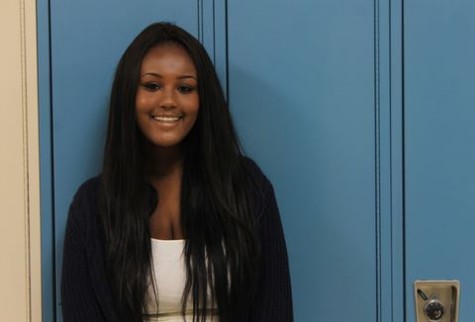Students explore post-high school possibilities
Shortly after 72 hours of straight training drills, Chase Sosnoski ’13 wakes up at 5:30 a.m. preparing to lead his platoon on a 10-mile walk with a full combat load and a machine gun, following his oath to protect our country. Meanwhile, Daniel Fishkind ’14 works to pay his band’s expenses to take their tour bus around the country, pursuing his musical career. After a long jog from Kindergarten to senior year, it’s been a trending option for students to take a step off the academic treadmill.
A gap year, which is a break between graduating high school and attending college, has become increasingly popular. Not attending college at all has been a trending alternative, as well.
Sosnoski, for example, took a military standardized test instead of the SATs his senior year. “The Marines teaches you self discipline, taking responsibility for yourself, and always trying your best,” Sosnoski explained. “They give me the tools to succeed in life. Tools of which are not offered at any college.”
Sosnoski joined the Marines after high school because he wanted to help end the deaths of innocent people.
“There are a lot of benefits to joining the military, like four years of full time college for free,” he said. “The government will pay all of that and extra money, so I don’t have to work to keep an apartment while I go to college.”
After the military, Sosnoski plans to get a degree either in computer engineering or law enforcement, eventually working for Microsoft or becoming a member of the FBI.
According to Elaine Schwartz, head of the guidance department, 97.8 percent of the class of 2014 pursued some type of education, 94 percent attended a four-year college, 3.2 percent attended a two-year college and 0.2 percent pursued other education.
During junior year, each counselor reaches out to his or her students for an individual meeting to brainstorm what their post-graduation plans might be, regardless if they plan to go to college or not.
“Our preference is that every student leaves with a plan,” guidance counselor Deborah Slocum said. “The plan does not have to include college.”
Alec Andrews ’15, who envisioned his post-graduate plans as going straight into college, soon found out schools he had his heart set on required certain classes that he did not take at Staples. After searching endlessly for alternatives, Andrews finally chose to take a gap year.
According to The New York Times, in 2013 just 65.9 percent of people who had graduated from high school the previous spring enrolled in college. That was down from 66.2 percent the previous year and was the lowest figure in a decade.
“During a gap year, I would be able to take the classes that are required, most likely at a community college,” Andrews said.
“I think taking a gap year gives you flexibility regarding your future. Although I have a plan for after, I can always change my plan. I have yet to find a con to taking a gap year.”
Andrews will start his job sailing a private yacht in the Mediterranean in late June. In October, he plans to be a trainee on the Picton Castle, which will sail from Novia Scotia down to South Africa.
After his gap year, he plans to go to Maritime Academy and earn his degree.
Daniel Fishkind ’14 is also taking a different path than most Staples students, and decided to devote his lifetime plans to his musical career.
“Everyone goes their own route after high school, but in the end I did it because it’s my passion,” Fishkind said. “I’m young and would rather take the risk because you only live once.”
Currently Fishkind works as a cook saving up money for the band’s expenses.
He hopes to use the tour bus he purchased last month to tour the country with his band members.
Slocum thinks the explanation behind the growing trend of not attending college post graduation is due to the cost of college and the economy. Still, she believes students feel an obligation to go to college.
“Culturally, Staples students are encouraged to pursue higher education,” Slocum said.
“Over time that has evolved into a mindset that higher education must mean a college degree. Students who don’t follow the ‘expected’ path can feel peer and adult pressure to attend college even though they know in their heart it’s not the right choice for them.”
Ultimately, it is up to the students to decide what path is best for them.
“My decision is my dream slowly becoming a reality,” Fishkind said. “But with anything else it takes time, money and effort.”

The brutal capture and murder of James Foley shook America, but it has not dissuaded journalists or budding activists from the concept of traveling to...















































